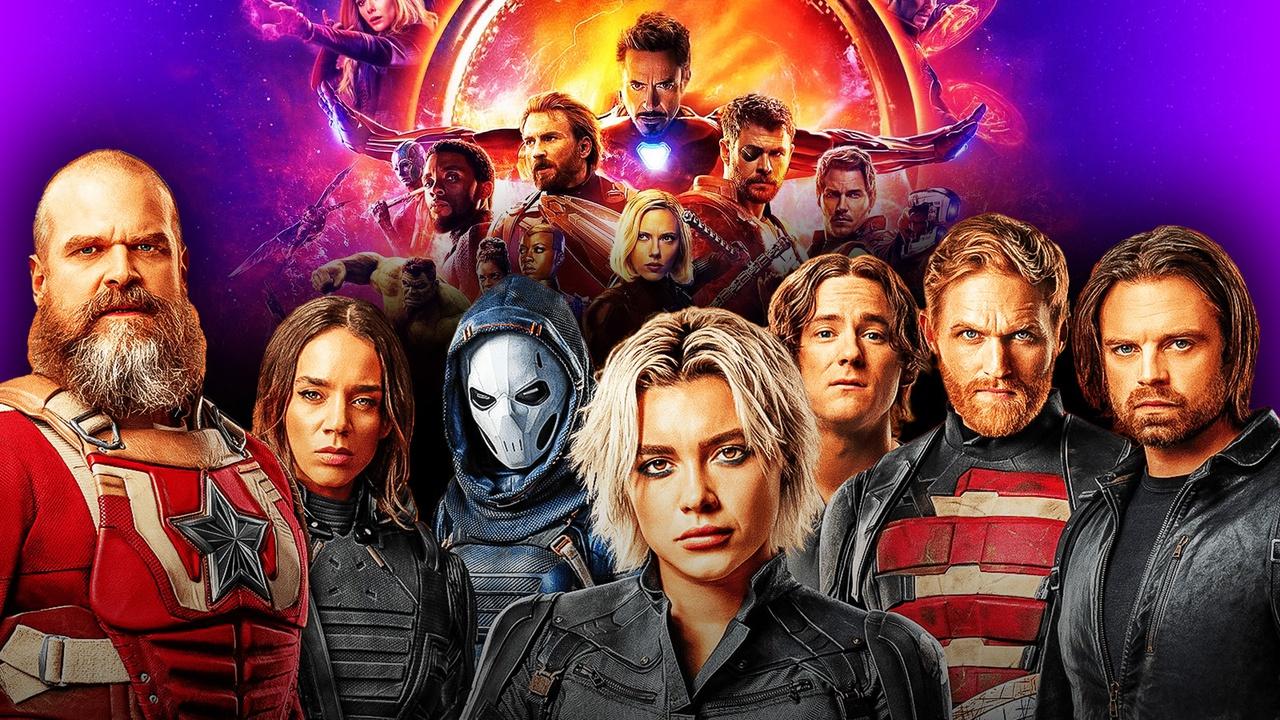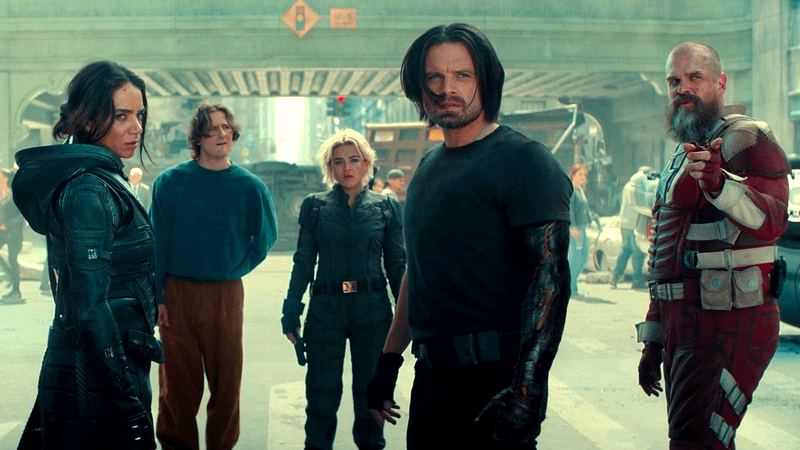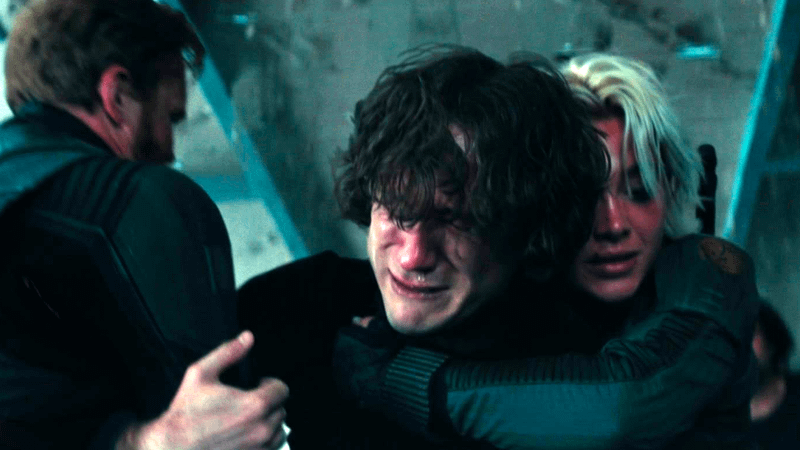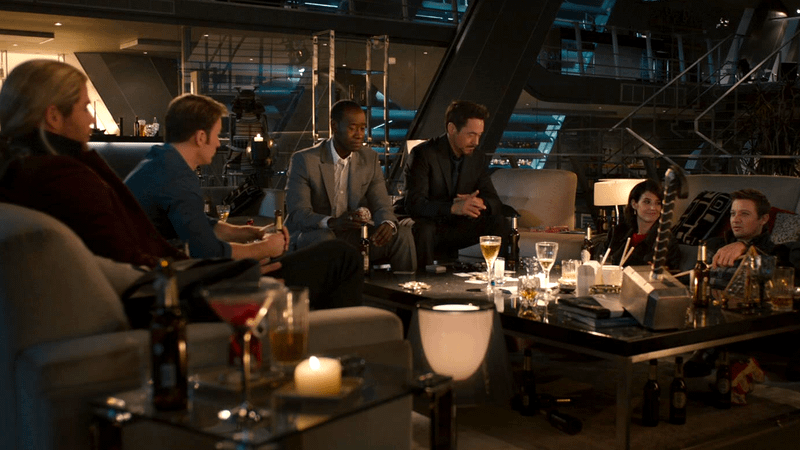
One surprising element Thunderbolts* absolutely nailed better than any Avengers film was its team introduction. While the Avengers movies often relied on years of buildup across multiple solo films, Thunderbolts* managed to establish its core lineup with clarity and emotional stakes in a much shorter span. This bold narrative choice set the tone for a team-up movie that felt distinct from its predecessors.
No one expected Thunderbolts* to outshine the Avengers in any major way, but it did something none of Earth's Mightiest Heroes ever truly pulled off: it made the team feel like a real family.
While Marvel Studios' Avengers saga delivered grand spectacle and universe-defining stakes, Thunderbolts* grounded its story in something smaller but just as meaningful, an emotional connection. In doing so, it created one of the most human endings to a superhero film we’ve seen in the MCU.

The heart of this familial bond comes through most powerfully in the final act, when Bob (Lewis Pullman) is pulled back from the brink of his mental breakdown not by violence or force, but by a group hug. The moment, bold in its emotional simplicity, defeats the film's central "villain" not with a beam in the sky or a massive CGI fight, but with love and empathy.
It's a raw, vulnerable scene that underscores what Thunderbolts* is really about: found family, healing, and how even people with incredible powers can fall into darkness when they lack connection and purpose.

That kind of emotional closure is something the Avengers films never quite achieved. While the original Avengers team did form strong bonds over time, they were constantly at odds, especially Steve Rogers (Chris Evans) and Tony Stark (Robert Downey Jr.).
In The Avengers (2012), the tension between Steve and Tony was immediate, whether it was clashing over leadership, Tony hacking into S.H.I.E.L.D.'s database, or Steve criticizing Tony's ego, "I know guys with none of that worth ten of you. I've seen the footage. The only thing you really fight for is yourself." Their dynamic was more about managing dysfunction than fostering unity.
Even in their strongest moments, the team often felt like super-friends tolerating each other rather than a genuine support system tapped into each other's fears and mental states.

By Avengers: Age of Ultron, the team chemistry was more polished, but still fractured beneath the surface. Tony's fear of cosmic threats (Thanos) led him to create Ultron (coming back with one design change in 2026) with Bruce Banner (Mark Ruffalo), a catastrophic move made without the team's full consent.
Steve tried to keep them united, insisting they would win or lose "together," but those cracks widened. The fallout from Ultron directly led to Captain America: Civil War, which tore the team apart.
Tony supported government oversight via the Sokovia Accords, while Steve resisted, believing in the team's autonomy. That ideological divide climaxed in a brutal confrontation after Tony learned that Bucky Barnes (Sebastian Stan) had killed his parents... and that Steve had kept it from him. Bucky's past trauma was teased in Thunderbolts*, making him a great choice to guide the new group.
These emotional wounds carried over into Avengers: Infinity War and Endgame. Tony and Steve didn't even share screen time in Infinity War, with the Avengers team still split into groups.
In Endgame, their reunion was bitter at first. Tony lashed out at Steve upon returning to Earth, blaming him for not being there when things went wrong. While they eventually reconciled for the greater good, and inspired the plot of Eternals, their relationship never quite reached the warmth or mutual emotional support that defined the Thunderbolts*.
That lack of emotional support is a thread that runs deep throughout the MCU, and one of the most tragic examples is Wanda Maximoff (Elizabeth Olsen). After losing Vision (Paul Bettany) in Infinity War, Wanda was left devastated when Thanos ripped the Mind Stone from his head.
Though she helped defeat Thanos in Endgame, the weight of her grief remained unaddressed. With no real support system around her, no team or close friends to lean on, she spiraled into depression from the trauma, eventually creating the Westview hex in WandaVision. And without a true network of emotional connection, she succumbed to darker instincts, transforming into the Scarlet Witch, becoming the villain of Doctor Strange in the Multiverse of Madness.
One could argue that if Wanda had found the family Bob (Lewis Pullman) had in Thunderbolts*, a group willing to hold her, not fight her, her story might have ended in healing, not destruction.
That contrast is why Thunderbolts* hits differently. The team in this film wasn't brought together by pure necessity or strategy but by shared trauma and a slow-building sense of trust. As confirmed in the post-credits scene, they've been operating together for 14 months as "The New Avengers," and that time allowed them to grow into something more than a task force; they became a chosen family.
With Avengers: Doomsday coming in December 2026, the emotional core established in Thunderbolts* might carry forward into a new chapter of Marvel storytelling, one where strength comes not just from power, but from love.












